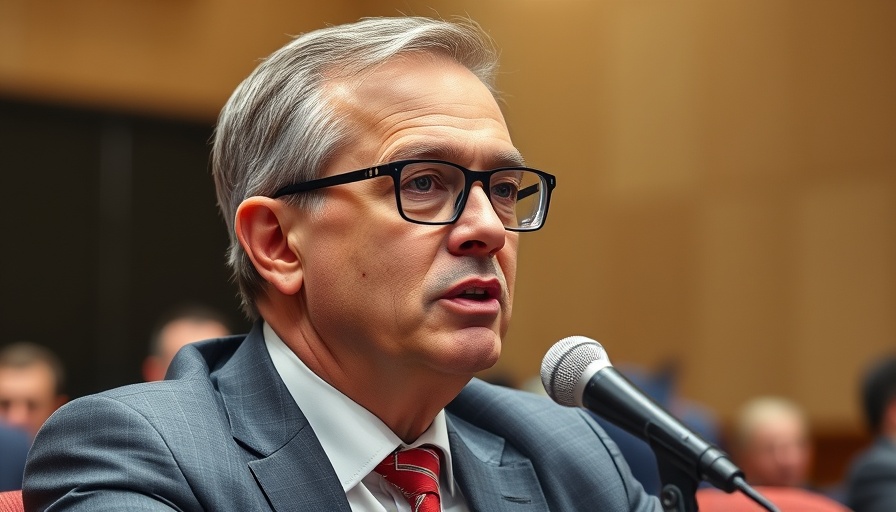
A Painful Disconnect: School Funding Amid a Voucher Push
The showdown within the Texas House Public Education Committee illustrates a stark dichotomy in the state’s approach to education funding. With the committee's approval of a bill that proposes an unprecedented $7.7 billion in additional funding for public schools alongside a $1 billion voucher program, lawmakers are unwittingly advocating for broad changes in how education is financed in Texas. This "Texas Two Step" presents a narrative of hope mixed with significant concern from public education advocates.
Understanding the Financial Shortfall
Democratic lawmakers, while supporting House Bill 2, are quick to ring alarm bells about what they deem insufficient funding for a system already in crisis. Representative James Talarico voiced a widespread sentiment among critics, stating, "This bill does not even catch us up to 2019 funding levels." The stakes are high as public schools grapple with dwindling resources, leading to the closure of campuses and heightened anxieties about educational equity.
Public Sentiment: Resistance Against Vouchers
Despite the backing of some Democrats for the public funding initiative, the voucher bill has drawn ire, as demonstrated by the extensive public testimony against it. Talarico noted that about 70 percent of testimony heard at previous meetings opposed the vouchers, reflecting a significant disconnect between legislative actions and constituent needs. This speaks volumes about the feelings of uncertainty and concern among families regarding where public funds are channeled.
A Shift Toward Private Education Funding?
What sets this legislative move apart is the proposed funding mechanism for the vouchers. The committee's substitute for Senate Bill 2 ties funding for vouchers to public school levels, varying significantly from previous approaches that offered flat rates to private school attendees. The intent to allocate up to $10,330 per student in vouchers underlines an unsettling trend of prioritizing private education over bolstering existing public institutions, which remain essential avenues for countless Texans.
Hidden Proceedings: A Call for Transparency
The controversy surrounding the passage of these bills was exacerbated by procedural issues that raised eyebrows. The absence of a public livestreaming of the most recent meeting adds a layer of opacity that many perceive as an affront to transparent governance. Lawmakers' struggles over the complexities of school funding need clarity to engage the public effectively; without it, trust in the legislative process diminishes, further alienating constituents.
Potential Impact on Future Education Policies
As Texas embarks on this controversial pathway, the implications may resonate well beyond the immediate financial allocations. If enacted, these changes could set a precedent for states across the nation. The evolving relationship between vouchers and public school funding reflects broader trends in educational policymaking, suggesting a potential reallocation of educational priorities that could redefine public education's landscape altogether.
What This Means for Texas Families
Families across Texas may feel the ripple effects of these decisions as they navigate an increasingly complex landscape of educational options. While programs like the proposed voucher system present new opportunities, they also raise critical concerns about inclusivity and fairness in education. Parents must weigh the benefits of financial support for private schools against the need for substantial improvements in public education.
As this discussion unfolds in Texas, it remains vital for residents to stay informed and engaged with the legislative process. Accountability and advocacy play crucial roles in shaping a more equitable educational future.
 Add Row
Add Row  Add
Add 




 Add Row
Add Row  Add
Add 

Write A Comment